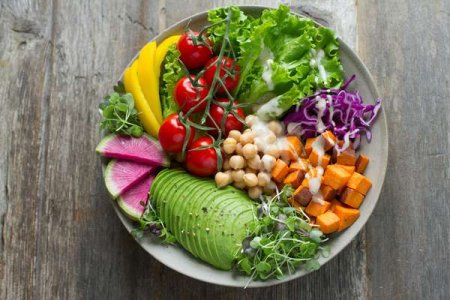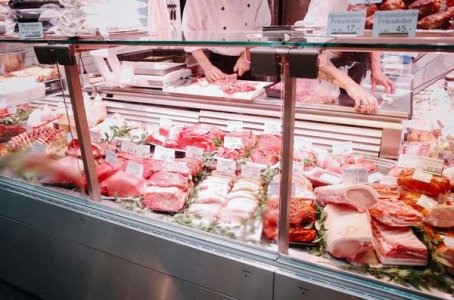Are you eating the riskiest foods in America? Here’s what you need to know—without panicking
- Replies 0
If you’ve been following the news lately, you might have seen some alarming headlines about food recalls and outbreaks. “The riskiest foods to eat” is enough to make anyone eye their sandwich with suspicion.
But before you swear off deli meat, cucumbers, or your favorite cheese forever, let’s take a closer look at what’s really going on—and how you can keep your kitchen (and your health) safe.
Foodborne Illnesses Are on the Rise—But Don’t Panic
According to the US Public Interest Research Group Education Fund, food-related illnesses jumped a whopping 41% compared to last year.
That’s a big number, and it’s driven by a series of high-profile recalls and outbreaks, including a listeria scare with Boar’s Head deli meats and an E. coli outbreak linked to onions at McDonald’s.
Consumer Reports, the trusted nonprofit that’s been testing and reviewing products for decades, recently released its annual “risky foods” report. They looked at which foods were most often recalled or linked to outbreaks in 2024, and the results might surprise you.

The 10 Riskiest Foods of 2024
Here’s the list, based on the number of illnesses, deaths, recalls, and the amount of food pulled from shelves:
1. Deli Meat
2. Cucumbers
3. Raw Dairy
4. Cotija and Queso Fresco Cheese
5. Eggs
6. Onions
7. Leafy Greens
8. Organic Carrots
9. Organic Basil
10. Ready-to-Eat/Cooked Poultry and Meat
Also read: Is your favorite snack making people sick? FDA recalls grab-and-go items after 10 hospitalizations
Why Are These Foods Risky?
Deli Meat & Ready-to-Eat Meats:
Deli meats are convenient and delicious, but they’re also a favorite hangout for listeria—a hardy bacterium that can survive in cold, damp environments like your fridge.
The 2024 Boar’s Head outbreak led to 10 deaths and a massive recall. Pre-cooked and ready-to-eat meats face similar risks, especially if they’re not handled or stored properly.
Produce (Cucumbers, Leafy Greens, Carrots, Basil, Onions):
Fresh produce can pick up bacteria like E. coli and salmonella from contaminated water, soil, or even nearby livestock.
The 2024 cucumber recall affected 113 people across 23 states. Leafy greens and organic carrots have also been linked to outbreaks, and onions made headlines after causing E. coli infections at McDonald’s.

Raw Dairy, Cotija, and Queso Fresco:
Raw (unpasteurized) dairy is always a gamble. In 2024, raw milk from Raw Farm caused a salmonella outbreak that sickened at least 165 people.
Cheeses like cotija and queso fresco, often made from raw milk, can also harbor dangerous bacteria. One producer, Rizo-Lopez Foods, was shut down after a years-long listeria outbreak.
Eggs:
Eggs can become contaminated with salmonella, especially if their shells are cracked or if they’re not handled properly during processing.
Should You Avoid These Foods Altogether?
Not necessarily! The key is understanding the risks and taking steps to minimize them.
Food safety in the US is generally strong, and outbreaks often lead to even stricter regulations and oversight. In fact, after a major recall, companies and regulators are usually on high alert, making it one of the safest times to buy those products.
Also read: Are your groceries putting you at risk? Nearly thousands die annually from this silent killer!
As food safety expert Martin Bucknavage from Penn State put it, “A company that has experienced an issue like this should be on high alert, checking and double-checking their systems to ensure safe product, and the USDA is definitely on high alert, ensuring that [the] product being produced is safe.”
How to Protect Yourself and Your Family
Here are some simple, effective steps you can take to reduce your risk of foodborne illness—without giving up your favorite foods:
1. Wash Produce Thoroughly:
Rinse fruits and vegetables under running water, even if you plan to peel them. For leafy greens, remove outer leaves and wash the rest.
2. Cook Meats and Eggs Properly:
Use a food thermometer to make sure meats reach safe internal temperatures. Eggs should be cooked until both the yolk and white are firm.
3. Avoid Cross-Contamination:
Keep raw meats, poultry, and seafood separate from other foods. Use different cutting boards and utensils for raw and cooked foods.

4. Refrigerate Promptly:
Don’t let perishable foods sit out for more than two hours (or one hour if it’s hot outside). Store leftovers in shallow containers so they cool quickly.
5. Clean Hands and Surfaces:
Wash your hands with soap and water before and after handling food. Clean cutting boards, knives, and countertops with hot, soapy water.
6. Be Cautious with Raw Dairy:
Unless you’re absolutely sure of the source and safety, it’s best to stick with pasteurized milk and cheeses.
7. Stay Informed:
Check the CDC and FDA websites for the latest recall information. If you have a product that’s been recalled, don’t take chances—throw it out or return it.
Every time we eat, there’s a small element of risk. As Janet Buffer from The George Washington University’s Institute for Food Safety and Nutrition Security says, “There is always a level of uncertainty when consuming food, and every individual must determine their level of risk tolerance.”
For most healthy adults, the risk of serious illness is low, but older adults, young children, pregnant women, and those with weakened immune systems should be extra cautious.
In case you missed it: The shocking source of the Boar’s Head listeria outbreak that’s claiming lives

Have you ever experienced a food recall or gotten sick from something you ate? Do you have any food safety tips or questions? Share your stories and advice in the comments below!
But before you swear off deli meat, cucumbers, or your favorite cheese forever, let’s take a closer look at what’s really going on—and how you can keep your kitchen (and your health) safe.
Foodborne Illnesses Are on the Rise—But Don’t Panic
According to the US Public Interest Research Group Education Fund, food-related illnesses jumped a whopping 41% compared to last year.
That’s a big number, and it’s driven by a series of high-profile recalls and outbreaks, including a listeria scare with Boar’s Head deli meats and an E. coli outbreak linked to onions at McDonald’s.
Consumer Reports, the trusted nonprofit that’s been testing and reviewing products for decades, recently released its annual “risky foods” report. They looked at which foods were most often recalled or linked to outbreaks in 2024, and the results might surprise you.

Food-related illnesses have risen significantly in the past year, with a notable increase in recalls and outbreaks linked to particular foods. Image source: Anna Pelzer / Unsplash.
The 10 Riskiest Foods of 2024
Here’s the list, based on the number of illnesses, deaths, recalls, and the amount of food pulled from shelves:
1. Deli Meat
2. Cucumbers
3. Raw Dairy
4. Cotija and Queso Fresco Cheese
5. Eggs
6. Onions
7. Leafy Greens
8. Organic Carrots
9. Organic Basil
10. Ready-to-Eat/Cooked Poultry and Meat
Also read: Is your favorite snack making people sick? FDA recalls grab-and-go items after 10 hospitalizations
Why Are These Foods Risky?
Deli Meat & Ready-to-Eat Meats:
Deli meats are convenient and delicious, but they’re also a favorite hangout for listeria—a hardy bacterium that can survive in cold, damp environments like your fridge.
The 2024 Boar’s Head outbreak led to 10 deaths and a massive recall. Pre-cooked and ready-to-eat meats face similar risks, especially if they’re not handled or stored properly.
Produce (Cucumbers, Leafy Greens, Carrots, Basil, Onions):
Fresh produce can pick up bacteria like E. coli and salmonella from contaminated water, soil, or even nearby livestock.
The 2024 cucumber recall affected 113 people across 23 states. Leafy greens and organic carrots have also been linked to outbreaks, and onions made headlines after causing E. coli infections at McDonald’s.

Consumer Reports identified the ten riskiest foods of 2024, including deli meat, cucumbers, raw dairy, cotija and queso fresco cheese, eggs, onions, leafy greens, organic carrots, organic basil, and ready-to-eat or cooked poultry and meat. Image source: Darth Liu / Unsplash.
Raw Dairy, Cotija, and Queso Fresco:
Raw (unpasteurized) dairy is always a gamble. In 2024, raw milk from Raw Farm caused a salmonella outbreak that sickened at least 165 people.
Cheeses like cotija and queso fresco, often made from raw milk, can also harbor dangerous bacteria. One producer, Rizo-Lopez Foods, was shut down after a years-long listeria outbreak.
Eggs:
Eggs can become contaminated with salmonella, especially if their shells are cracked or if they’re not handled properly during processing.
Should You Avoid These Foods Altogether?
Not necessarily! The key is understanding the risks and taking steps to minimize them.
Food safety in the US is generally strong, and outbreaks often lead to even stricter regulations and oversight. In fact, after a major recall, companies and regulators are usually on high alert, making it one of the safest times to buy those products.
Also read: Are your groceries putting you at risk? Nearly thousands die annually from this silent killer!
As food safety expert Martin Bucknavage from Penn State put it, “A company that has experienced an issue like this should be on high alert, checking and double-checking their systems to ensure safe product, and the USDA is definitely on high alert, ensuring that [the] product being produced is safe.”
How to Protect Yourself and Your Family
Here are some simple, effective steps you can take to reduce your risk of foodborne illness—without giving up your favorite foods:
1. Wash Produce Thoroughly:
Rinse fruits and vegetables under running water, even if you plan to peel them. For leafy greens, remove outer leaves and wash the rest.
2. Cook Meats and Eggs Properly:
Use a food thermometer to make sure meats reach safe internal temperatures. Eggs should be cooked until both the yolk and white are firm.
3. Avoid Cross-Contamination:
Keep raw meats, poultry, and seafood separate from other foods. Use different cutting boards and utensils for raw and cooked foods.

Many foods became “risky” due to contamination with bacteria such as salmonella, listeria, and E. coli, often resulting from mass production, storage, or environmental contamination during farming. Image source: Alexander Maasch / Unsplash.
4. Refrigerate Promptly:
Don’t let perishable foods sit out for more than two hours (or one hour if it’s hot outside). Store leftovers in shallow containers so they cool quickly.
5. Clean Hands and Surfaces:
Wash your hands with soap and water before and after handling food. Clean cutting boards, knives, and countertops with hot, soapy water.
6. Be Cautious with Raw Dairy:
Unless you’re absolutely sure of the source and safety, it’s best to stick with pasteurized milk and cheeses.
7. Stay Informed:
Check the CDC and FDA websites for the latest recall information. If you have a product that’s been recalled, don’t take chances—throw it out or return it.
Every time we eat, there’s a small element of risk. As Janet Buffer from The George Washington University’s Institute for Food Safety and Nutrition Security says, “There is always a level of uncertainty when consuming food, and every individual must determine their level of risk tolerance.”
For most healthy adults, the risk of serious illness is low, but older adults, young children, pregnant women, and those with weakened immune systems should be extra cautious.
In case you missed it: The shocking source of the Boar’s Head listeria outbreak that’s claiming lives
Key Takeaways
- Food-related illnesses have risen significantly in the past year, with a notable increase in recalls and outbreaks linked to particular foods.
- Consumer Reports identified the ten riskiest foods of 2024, including deli meat, cucumbers, raw dairy, cotija and queso fresco cheese, eggs, onions, leafy greens, organic carrots, organic basil, and ready-to-eat or cooked poultry and meat.
- Many foods became “risky” due to contamination with bacteria such as salmonella, listeria, and E. coli, often resulting from mass production, storage, or environmental contamination during farming.
- Experts advise that these foods do not need to be entirely avoided, but extra care should be taken with food safety practices, such as thorough washing of produce, proper refrigeration, cooking meats to safe temperatures, and preventing cross-contamination.
Have you ever experienced a food recall or gotten sick from something you ate? Do you have any food safety tips or questions? Share your stories and advice in the comments below!






